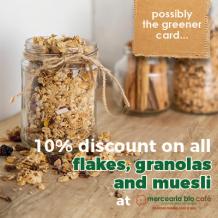For our Babies...

Breastmilk
should be the first choice until six months of age, straight from the
source, the Mother preferably, as it provides all the nutrients needed
for the first months of the baby.
After six months the child is already physiologically and neurologically mature to receive other foods, so it is important to start their introduction slowly and gradually.
The child's nutritional needs are no longer supplied with breast milk, although breast milk continues to be an important source of calories and nutrients and can be maintained until two years of age or more.
Complemental
foods, especially prepared for the child, are called transitional
foods. The baby porridges are one of them, often being introduced.
Baby porridges are often chosen by mothers, although they generally contain more sugars and are less nutritious than those made at home.
Some have added sugar and salt to enhance flavor, improve texture and prolong product shelf life, which makes babies get used to sweet and salty flavours, instead of soup or fruit without additions.
Even so, you can find good options in the market. In the following points, you can learn to choose and interpret them.
1. Check for what age the baby porridge is recommended for
It is mandatory to be in the package the age from which the baby porridge can be included in the feeding of the baby.
2. Check for the presence or absence of gluten
Any baby porridge allowed after four months must indicate on the presence of gluten.
Many experts advise that the first baby porridges introduced in baby food are the gluten-free porridges (protein present in some cereals). Because if the baby has celiac disease (gluten intolerance) and consume potatoes with this substance, the consequences will be more serious up to six months. The immaturity of the baby's digestive tract is poorly tolerated by gluten intake, which can lead to serious gastrointestinal disturbances, which are difficult to treat or to control, especially in the first few months of life.
Rice and corn do not contain gluten, so the ingredients used may be rice, millet, corn and tapioca.
3. Take into account the nutrients
The baby porridge should preferably consist of carbohydrates and proteins. It should contain vitamins A, B, C, E and PP, ions and minerals such as calcium, iron, phosphorus and potassium.
4. Avoid the presence of sugar
The addition of sugar should not exceed 10 percent of the total calories eaten throughout the day, so opt for potatoes without this ingredient. If you choose a potato with sugar, the amount should be less than 20 percent of the total calories. For example, in 100 g of product, the value of carbohydrates, of which sugars, should be less than 20 g.
The enrichment in sugars increases the caloric value of the flour and can favor obesity, as well as the appearance of cavities.
5. Avoid the presence of salt
Prefer products without salt or with a value less than 130 mg of sodium per 100 g.
Milk contains sufficient amounts of sodium. There is no reason to accustom children to salty taste.
6. Consider how to prepare
As for the type of baby porridges, they are divided into non-dairy and dairy cereal porridges. The former must be rebuilt in breast milk or transitional milk and the dairy products, which as the name implies, contain milk proteins in their composition, do not require the addition of proteins, and must be prepared with boiled water.
In more specific cases, such as infants who have a family history of allergy to animal milk proteins, one should opt for milk formulas consisting of extensively hydrolyzed proteins. Usually designated as "HA".
7. Choose the flavour
The baby's first porridge should not have a specific aroma, but should be just cereal. After the introduction of the soup, you can start the mashed fruits. Choose soft, natural flavours such as pear, banana and apple as they are also the fruits that generally have the least risk of adverse reactions. As you introduce new foods, it is important to promote variety to ensure that your baby has access to all the nutrients needed.
Other important aspects:
1. The ingredients that appear first on the label are those that are present in greater quantity.
2. At least until six months of age, you should choose a gluten free potato.
3. Sugar may have different names on the label. Corn syrup, cane syrup, brown sugar, dextrose and fructose are some of them.
My suggestions:
Holle Non-gluten-free popcorn
Holle Non-dairy whole grains
Topfer non-dairy popcorn Bio Organic

green card - flakes, granolas and muesli
For the Mercearia Bio Green Card hol...
Read article



